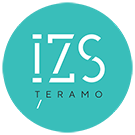2021 Zoonosis Report
The latest zoonosis report, jointly published by the European Food Safety Authority (EFSA) and the European Centre for Disease Prevention and Control (ECDC), reports an increase in the number of outbreaks of zoonoses and food-borne diseases in 2021 compared to the previous year. However, the number of outbreaks remains lower than in the pre-pandemic period and is likely to be affected by the control measures against COVID-19 implemented over the last two years. The number of outbreaks of listeriosis reported (23) is the highest in recent years. The number of outbreaks of listeriosis reported (23) is the highest in recent years.
In 2021, 19.3% of outbreaks were caused by Salmonella ; the major sources of infection were eggs, egg products, and foods composed of several ingredients.
As regards human cases, not associated with food-borne outbreaks of toxinfection, la campilobacteriosis remains the most frequently reported zoonosis, with an increasing number of cases, 127,840 compared to recent years. The most common sources of infection were chicken and turkey meat. Salmonellosis is the second most reported zoonosis, with 60,050 cases. This is followed by infections with Yersinia (6.789 casi), le infezioni da Escherichia coli producing Shiga toxin (STEC) (6.084) and Listeria monocytogenes (2.183).
The Report also includes data on Mycobacterium bovis/caprae, Brucella, Trichinella, Echinococcus, Toxoplasma gondii , rabies, Q fever, West Nile Virus and tularemia.
Mycobacterium bovis/goat, Brucella, Trichinella, Echinococcus, Toxoplasma gondii, rabies, Q fever, West Nile Virus and tularemia.
Within the Consorzio ZOE (Zoonoses under a One health perspective in the EU) the Istituto Zooprofilattico Sperimentale dell'Abruzzo e del Molise (IZS-Teramo) has also supported EFSA and ECDC in the provision of interactive communication tools, aimed at both professionals as well as citizens. In particular, three new "story maps" have been implemented: Listeria monocytogenes, Salmonella and Campylobacter. Through a schematic structure, a language suitable also for non-specialists, as well as the use of infographics, each story map describes the main characteristics of the pathogen, the routes of transmission, the disease it causes and the risk factors, both in animals and humans.
Particular attention is paid to prevention, with information about the existing regulations and the actions that EFSA and ECDC carry out in protecting citizens. Consumers too can do a lot to fight these diseases in everyday life. In order to enhance public awareness, story maps also contain specific prevention recommendations at all levels of the food chain, including, of course, the preparation of home made food.
More in-depth and comprehensive are the "dashboards", implemented in the framework of the same initiative. They allow interactive consultation of the huge amount of information available on the three pathogens examined and the relative outbreaks recorded both in the Member States of the European Union and in other countries participating in the collection of data.
These communication tools are added to two other initiatives aimed at giving a general overview of diseases transmitted through food (foodborne outbreaks). Implemented in 2021 and recently updated, they consist, like the others, of a dashboard and a story map. In this case also, the contribution of IZS-Teramo aimed at giving valuable and easily understandable information to citizens, at the same time providing resources for in-depth knowledge about specific issues. .
REFERENCES
Laboratorio Nazionale di Riferimento Campylobacter spp.
Story maps
Dashboards
© IZSAM January 2023
|
|
Istituto Zooprofilattico Sperimentale
dell'Abruzzo e del Molise "G. Caporale"
Campo Boario | 64100 TERAMO | ITALIA
Telefono 0039.0861.3321 | Fax 0039.0861.332251
e-mail: archivioeprotocollo@izs.it
Posta elettronica certificata: protocollo@pec.izs.it
Partita IVA: 00060330677
Codice Fiscale: 80006470670


